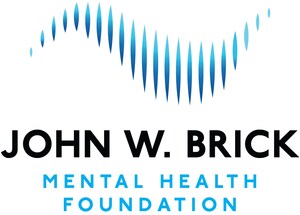
TIMONIUM, Md., Aug. 8, 2025 /PRNewswire/ -- Mindfulness, a practice rooted in ancient contemplative traditions, has become a widely studied and respected approach in modern mental health and well-being care. Defined as the act of paying purposeful, nonjudgmental attention to the present moment, mindfulness helps individuals become more aware of their thoughts, emotions, and bodily sensations. Research increasingly supports its role in promoting mental well-being and emotional balance.
The Mental Wellbeing Association (MWA) is focused on well-being education that stresses a comprehensive psychological perspective focusing on the four pillars of mental well-being: exercise, nutrition, social connection, and mindfulness.
As a resource to the public, MWA shares five ways mindfulness enhances well-being by:
- Reducing Stress and Anxiety
- Enhancing Emotional Regulation
- Improving Focus and Cognitive Function
- Promoting Resilience
- Reducing Symptoms in Mental Health Disorders
Backed by robust scientific research, mindfulness offers a practical and accessible way to improve well-being. From emotional balance to cognitive clarity, this practice empowers individuals to live with greater awareness, resilience, and peace of mind. By practicing mindfulness, individuals can cultivate an ability to observe their emotions without being overwhelmed by them. This helps break reactive behavior patterns, fostering a more measured and thoughtful approach to life's challenges. Simple mindfulness exercises, such as mindful breathing or body scans, can be incorporated into daily routines to improve attention and mental clarity. Over time, these practices contribute to a more focused and productive mindset.
Mindfulness helps individuals develop a greater capacity to accept and adapt to life's uncertainties. By staying present and cultivating a nonjudgmental attitude, mindfulness enables people to face difficulties with greater strength and flexibility.
Mindfulness can be practiced in a variety of simple yet powerful ways that fit seamlessly into daily life. Here are a few science-backed methods recommended by the Mental Wellbeing Association: mindful breathing, meditation, walking, journaling, listening to music, and art. Read more here.
These practices don't require special equipment or large time commitments—just intention and consistency. By integrating mindfulness into everyday moments, anyone can begin to build greater emotional balance, focus, and mental well-being.
About the Mental Wellbeing Association
The Mental Wellbeing Association is a growing community of professionals dedicated to integrative mental health and well-being. Our programs and resources empower you to make a lasting impact in your own life and the lives of others. Discover certifications and more at MentalWellbeingAssociation.org.
SOURCE John W. Brick Mental Health Foundation








Share this article